Specializing in the Sale of Medical & Healthcare Related Businesses
Factors That Affect Valuation
How Certain Factors Affect Value
5 min read


What Factors Affect the Value of a Medical Business?
Determining the value of a medical or healthcare-related business is a complex process that goes beyond just looking at revenue and profit. Buyers consider multiple factors, including financial performance, operational efficiency, market conditions, and future growth potential. If you’re planning to sell your medical practice, dental office, assisted living facility, or any other healthcare business, understanding these factors can help you prepare for a successful and profitable sale.
The valuation process is not one-size-fits-all. Two businesses with similar revenues may be valued differently based on patient retention, staff stability, or location. Buyers want to know they are making a solid investment, and businesses that demonstrate stability, profitability, and growth opportunities will command a higher price.
Financial Performance and Profitability
One of the first things buyers examine is the financial health of the business. A steady track record of revenue growth and strong profit margins makes a business more attractive. Consistency is key, buyers look for businesses that show stable or increasing earnings over several years rather than unpredictable fluctuations.
Profitability matters just as much as revenue. A business with high revenue but excessive expenses may not be as valuable as a smaller, leaner operation with higher profit margins. Buyers will carefully assess operating costs, including rent, payroll, and supplies, to determine whether the business is running efficiently.
Financial transparency is essential. Sellers who maintain clean, well-documented financial records, including tax returns, profit and loss statements, and balance sheets, will attract more serious buyers. Disorganized financials can raise concerns and slow down the sale process.
Patient Base and Retention
The size, stability, and diversity of a business’s patient base have a major impact on its value. A steady stream of returning patients indicates reliability and long-term revenue potential. High patient retention is particularly valuable because it reduces the risk for buyers, who want assurance that revenue will continue after they take over.
A business that relies too heavily on a small number of high-value patients or a single referral source can be seen as risky. If a significant portion of revenue comes from a single hospital contract, insurance provider, or referring physician, buyers may be concerned about what happens if that relationship changes. A well-diversified patient base provides greater stability.
Demographics also play a role in valuation. A business with an aging patient base may need to adjust services or marketing strategies to attract younger patients, while one located in a growing area with a demand for healthcare services may be positioned for higher future earnings.
Operational Efficiency and Staff Stability
Buyers prefer businesses that can operate smoothly without relying heavily on the current owner. If daily operations require constant oversight from the owner, the transition to new ownership may be more difficult. Having a strong management team and well-trained staff in place increases the value of the business.
A business with a history of high staff turnover can raise concerns for buyers. Frequent employee changes can disrupt patient care, reduce efficiency, and create uncertainty. A stable team that has been with the business for several years is a strong selling point, as it reassures buyers that the transition will be smoother.
Standardized processes, documented protocols, and efficient scheduling systems can also make a business more attractive. Buyers want to see that operations are well-organized and that staff members are capable of handling daily tasks without major disruptions.
Location and Market Conditions
The location of a medical business plays a crucial role in its valuation. A practice in a high-demand area with a growing population and limited competition will be more valuable than one in an oversaturated market. Proximity to hospitals, major employers, and residential communities can also enhance a business’s appeal.
Local market conditions influence how much buyers are willing to pay. In some areas, demand for certain types of healthcare services, such as urgent care, senior care, or specialized therapies, may be increasing, leading to higher valuations. On the other hand, if reimbursement rates are declining or new regulations are creating operational challenges, buyers may adjust their offers accordingly.
Lease agreements and real estate ownership also factor into valuation. If the business operates in a leased space, buyers will review the lease terms to determine whether they are favorable and transferable. A long-term lease with reasonable rates can add stability, while an upcoming lease expiration may raise concerns. If the business owns the property, real estate value will be considered separately, and buyers may have the option to purchase the property along with the business.
Regulatory Compliance and Risk Management
Healthcare businesses must comply with strict industry regulations, and buyers want to ensure there are no compliance issues that could create legal or financial risks. A business with a history of regulatory violations, billing discrepancies, or malpractice claims may struggle to attract buyers or may receive lower offers.
Ensuring compliance with HIPAA, OSHA, and other healthcare regulations is critical. Buyers will also review billing practices to verify that insurance reimbursements are handled correctly and that there are no ongoing disputes with payers. Any unresolved compliance issues should be addressed before listing the business for sale.
Risk management also extends to business liability. Having proper malpractice insurance, cybersecurity measures, and employee contracts in place can reassure buyers that the business is well-protected against potential risks.
Technology and Modernization
Medical businesses that use up-to-date technology are generally more attractive to buyers. An efficient electronic medical records (EMR) system, automated billing solutions, and telemedicine capabilities can improve operational efficiency and patient care. Buyers will assess whether the technology in place is up to industry standards or if costly upgrades will be necessary after the sale.
Outdated equipment or inefficient administrative processes can lower a business’s value. If major investments are needed to modernize the business, buyers may use that as leverage to negotiate a lower price. Sellers who make strategic upgrades before selling can position their business more competitively.
Growth Potential and Competitive Advantage
A business with clear growth opportunities is more valuable to buyers who want to expand operations and increase revenue. If there is potential to add new services, expand operating hours, or tap into underserved patient demographics, buyers may be willing to pay a premium for the business.
Competitive advantages such as strong branding, positive online reviews, and a solid reputation in the community also contribute to value. A well-established business with a strong referral network and a recognizable name can command a higher asking price than a lesser-known competitor.
Buyers also consider market positioning. If the business specializes in a high-demand service, such as pain management, dermatology, or senior care, it may be seen as a valuable acquisition. Practices that offer unique treatments, specialized expertise, or strong insurance relationships may also receive higher valuations.
Final Thoughts: Maximizing the Value of Your Business
Understanding the factors that affect the value of a medical business allows you to make strategic improvements before selling. Strong financial performance, a loyal patient base, efficient operations, compliance with regulations, and modern technology all contribute to higher valuations.
If you’re thinking about selling your healthcare business, we can help you assess its true value and implement strategies to increase its market appeal. With our experience in brokering medical business sales, we can connect you with serious buyers and guide you through every step of the process.
Contact us today for a confidential consultation and take the first step towards a successful and profitable sale.
MedPro Business Advisors at Boss Group International
Specializing in the sale of medical and healthcare related businesses
© 2025. All rights reserved.
